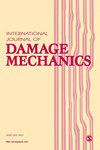基于卷积神经网络的钢筋混凝土板爆炸响应与损伤评估
IF 4
2区 工程技术
Q2 MATERIALS SCIENCE, MULTIDISCIPLINARY
引用次数: 0
摘要
混凝土结构是必不可少的庇护所,储存,运输和防御系统。然而,他们很容易受到恐怖袭击和爆炸。这些结构中暴露最多的构件是钢筋混凝土板,它也是主要的传力构件。因此,本研究利用机器学习技术来预测受空气爆炸荷载作用下钢筋混凝土板的最大垂直位移。利用板坯和TNT炸药的11个输入参数来预测最大位移。该数据集包括146个样本,来自公开文献中对钢筋混凝土板的各种实验和数值爆炸研究。不是以表格格式表示数据,而是使用不同的技术将每个单独的数据样本转换为图像:一个使用自相似矩阵,另一个使用表格数据的图像生成器。图像生成通过为像素位置分配特征将表格数据转换为图像。这导致了输入特征的空间依赖性。利用这些图像,采用各种卷积神经网络(ResNet-18、ResNet-50、ResNet-101、EfficentNet-b0、ShuffleNet、Xception、DarkNet-53和DenseNet-20)进行训练,预测板的最大位移。大多数模型都显示出令人鼓舞的结果。基于均方根误差、平均绝对误差和决定系数对模型的性能进行了预测,并考察了输入特征对最大位移的影响。同时,对钢筋混凝土板爆炸损伤评估的初步研究进行了说明,为今后基于本文提出的方法开展的工作奠定基础。本文章由计算机程序翻译,如有差异,请以英文原文为准。
Blast response and damage assessment of reinforced concrete slabs using convolutional neural networks
Concrete structures are essential for shelters, storage, transportation, and defense systems. However, they are vulnerable to terrorist attacks and explosions. The most exposed component of these structures is the reinforced concrete slab, which is also the primary force-transferring member. Therefore, the present study utilizes machine learning techniques to predict the maximum vertical displacement of reinforced concrete slabs subjected to air-blast loading. This can be achieved using 11 input parameters of the slab and TNT blast to predict the maximum displacement. The dataset comprises 146 samples from various experimental and numerical blast studies on reinforced concrete slabs in the open literature. Rather than presenting the data in a tabular format, each individual data sample is transformed into an image using distinct techniques: one uses a self-similarity matrix, and the other utilizes an image generator for the tabular data. Image generation transforms tabular data into images by assigning features to pixel positions. This results in spatial dependency of the input features. Using these images, various convolutional neural networks were adopted (ResNet-18, ResNet-50, ResNet-101, EfficentNet-b0, ShuffleNet, Xception, DarkNet-53, and DenseNet-20) and trained to predict the slab maximum displacement. Most models demonstrated promising results. The performance of the models was predicted based on the root mean squared error, mean absolute error, and coefficient of determination, and the impact of input features on the maximum displacement was examined. Along with this, the initial study of the blast damage assessment on reinforced concrete slabs is explained for future work to be performed based on the proposed method.
求助全文
通过发布文献求助,成功后即可免费获取论文全文。
去求助
来源期刊

International Journal of Damage Mechanics
工程技术-材料科学:综合
CiteScore
8.70
自引率
26.20%
发文量
48
审稿时长
5.4 months
期刊介绍:
Featuring original, peer-reviewed papers by leading specialists from around the world, the International Journal of Damage Mechanics covers new developments in the science and engineering of fracture and damage mechanics.
Devoted to the prompt publication of original papers reporting the results of experimental or theoretical work on any aspect of research in the mechanics of fracture and damage assessment, the journal provides an effective mechanism to disseminate information not only within the research community but also between the reseach laboratory and industrial design department.
The journal also promotes and contributes to development of the concept of damage mechanics. This journal is a member of the Committee on Publication Ethics (COPE).
 求助内容:
求助内容: 应助结果提醒方式:
应助结果提醒方式:


